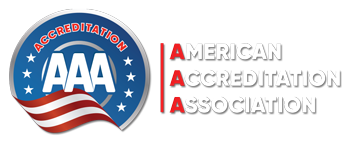How to be prepared for Accreditation?
Accreditation may be necessary if you want to be successful in your field. To begin with, accreditation lends legitimacy to your company. Finally, you and your staff will be equipped with the knowledge and abilities you require. It can also help you prepare for the best possible compliance with industry standards, regulations, and practices.
According to the American Correctional Association, accreditation agencies “examine and evaluate conformity with requirements. ” Policies and procedures necessary for the functioning of programs are developed by each accrediting body.
Nearly every field has an accrediting body, and there are many of them. Healthcare, education and law enforcement are just a few of the many types of organizations that fall within this category.
Regional and national accreditors are just two of the many options for particular programming accreditation in higher education.
As a result, it gives you the ability to get to the top in your field. Accreditation distinguishes you from competitors and groups with similar goals.
1. Make it a collaborative effort
Having everyone on board from the start will make your effort more successful for your entire agency.
Consider it in this light. Everyone in the organization should be involved in the process of accreditation, not only the most important members.
Accreditation managers and compliance officers aren’t your only allies in this endeavor. Share the advantages of obtaining accreditation in your field with your entire staff in order to gain their support.
If you can, let your team know what to expect and why you’ve chosen to employ accreditation management software.
2. Establish a single source of truth
From the beginning of your certification process, the organization will help you get the most out of it. Establishing a single, ideally electronic, source of truth is the most effective method.
You’re probably aware of how tough it is to keep things organized in the office when there are piles of paper all over the place. The accreditation process necessitates a thorough evaluation of all of your policies and procedures, so being well organized is critical.
Your organization will thank you if you maintain all of your files in a single spot. This way, you and your coworkers will all be revising and commenting on the same document at the same time.
With a document management system, you’ll be amazed at how much time and money you’ll save.
3. Receive Consultancy
Accreditation is only possible if you have the proper training. Managers will learn how to comply with standards, document compliance, and prepare for the agency’s review by assessors by attending training sessions.
4. Conduct a fictitious audit
It is up to the individual accrediting bodies to set their own criteria, regulations, and procedures for ensuring adherence.
For example, according to a partner organization, “most standards are written in generic terms so that an organization can accomplish compliance in the manner most consistent with its particular practice setting and most conducive to good quality.”
Let your company’s policies sink in for a while before making any decisions.
Before you begin, think about the standards of an auditor and familiarize yourself with what the accrediting body of your company will be looking for. What methods will they use to evaluate your activities? Is there anything you can do to help them?
5. Ask for Assistance
Give assessors access before the on-site review is performed.
On-site evaluation is an important part of obtaining and maintaining certification in all fields.
You may save a lot of time for everyone by addressing any questions or concerns at the outset.
The assessor or auditor can observe the changes nearly instantly if you have a policy management solution.
6. Leave it to the Specialists
Enabling electronic viewing of documents by auditors ahead of a physical audit has various advantages.
Your accrediting company will spend the majority of its time going through your policies if they are printed out and kept in binders. However, they will have more time if you share these materials with them prior to their arrival on site.
As a result, they’ll have more time to look around your facility and get a sense of how your team works in action. This is a crucial part of your evaluation because you’ve undoubtedly spent a lot of time training your employees in compliance.
7. Make a Re-accreditation Plan
Accreditation maintenance is equally as critical as the first survey in terms of its significance.
Consider it a way to lose weight. Unless you stick with your diet and exercise routine for an extended length of time, you will lose momentum. So you’ll put on all the weight you’ve dropped back on!
Once you’ve got your policy manual in order, it’s easy to let things spiral out of control. Establish a maintenance strategy after you’ve completed the accreditation preparations.
Maintenance plans are required by many accrediting agencies, as they frequently renew their accreditations.
Maintaining compliance with applicable standards, updating proofs of compliance, and adhering to the standards’ text and spirit are all requirements of the agency’s three-year accreditation award cycle. To maintain its accreditation status, the agency must pay the relevant renewal costs and submit an annual report.
Conclusion
It’s sure that accreditation is a good thing, but the procedure can be difficult. Consider using an accreditation company to alleviate the burden on your time and resources. Contact us for help.
